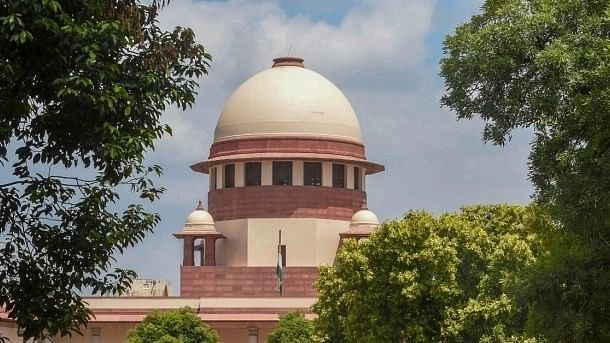
A view of the Supreme Court.
Credit: PTI File Photo
New Delhi: The Union government on Wednesday opposed before the Supreme Court a plea by the mineral-rich states seeking refund of the royalty levied by it on mines and mineral-bearing land since 1989.
Solicitor General Tushar Mehta, appearing for the Centre, submitted before a nine-judge bench presided over by Chief Justice of India D Y Chandrachud that Madhya Pradesh and Rajasthan, ruled by the BJP, wanted the July 25 judgment to be made applicable prospectively.
He also said making the July 25 verdict retrospective will have cascading effects on a common person as companies will pass on the financial burden on them.
On July 25, 2024, the nine-judge by a majority of 8:1 held that states have legislative competence to levy tax on mineral-bearing lands.
On Wednesday, the central government contended that any order asking it to pay the alleged dues with retrospective effect will have a “multipolar” impact.
Mehta argued that applying the judgment retrospectively will have an impact on several industries, including the PSUs, and it will open the floodgates of new litigations.
He emphasised on justice to be done for both sides. The court may consider saying that neither the state government may demand any levy retrospectively nor the private parties or PSUs which have paid would seek any refund of the money, he said.
The nine-judge bench also comprising justices Hrishikesh Roy, Abhay S Oka, J B Pardiwala, Manoj Misra, B V Nagarathna, Ujjal Bhuyan, Satish Chandra Sharma and Augustine George Masih, reserved its order on the issue of whether royalty levied by the Centre on mines and mineral-bearing lands since 1989 will be refunded to the states.
Senior advocate Rakesh Dwivedi, appearing for Jharkhand Mineral Development Authority, made submissions in favour of making the judgment retrospective. On the aspect of financial implications if the judgment were to apply retrospectively, Dwivedi suggested that past arrears could be paid in instalments.
Senior advocate Vijay Hansaria, appearing for Uttar Pradesh, argued that the high court had upheld the state levy and now, the apex court has also approved it. All companies except two companies have been paying the state government's tax, he said.
Senior advocate Harish Salve, representing Mahanadi Coalfields, argued that the past levy demands would be in excess of the net worth of many companies and application of the judgment retrospectively would push companies to bankruptcy.
Several companies involved in mining activities supported the Centre's position on refund of royalty to mineral-bearing states.
Odisha government, ruled by the BJP, did not take any clear stand despite being prodded by the bench and the counsel appearing for the state only said they don't want the exchequer to feel the burden.
On July 25, the bench led by CJI DY Chandrachud had upheld the power of the states to impose tax, saying royalty paid by mining lease holders to the central government is not a tax.
The court had declared the Mines and Minerals (Development and Regulation) Act, 1957 do not limit the power of the states to impose the tax.
Justice Nagarathna, however, had dissented with the majority view and held that royalty is in nature of tax.
She felt allowing states to impose tax would lead to a breakdown of the federal system and under the constitution in the context of mineral development and exercise of mineral rights. It would also lead to a slump in mining activity and unhealthy competition to obtain mining leases in states.
